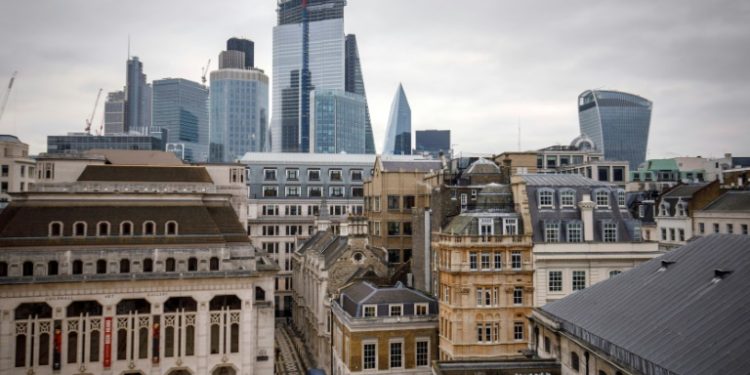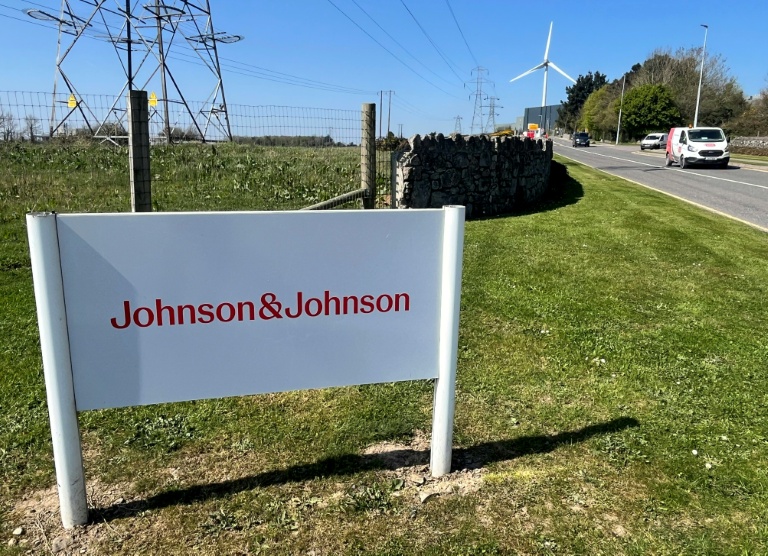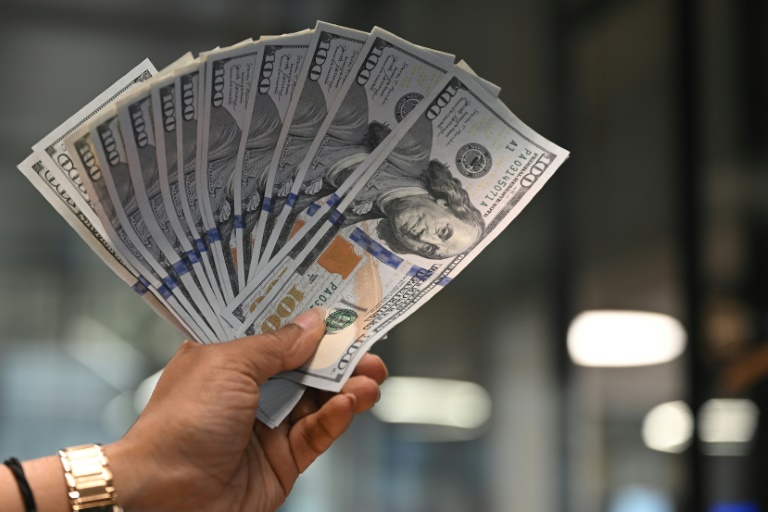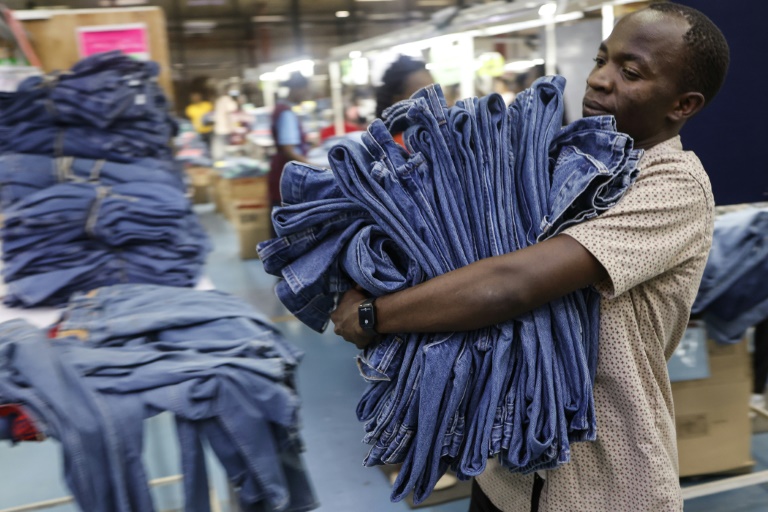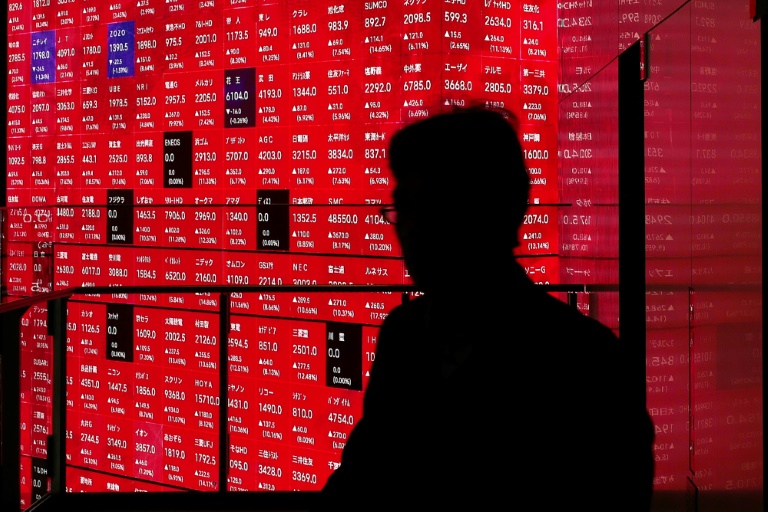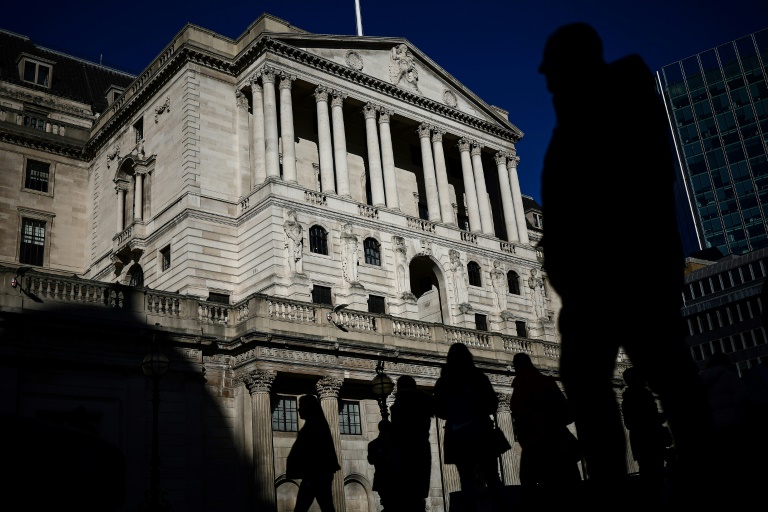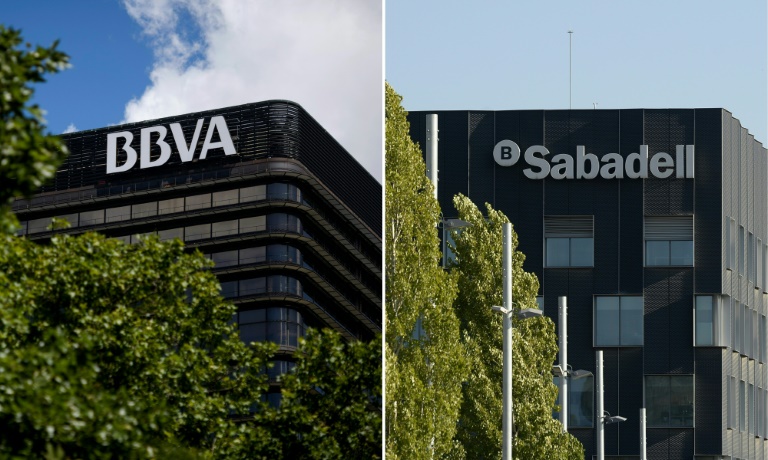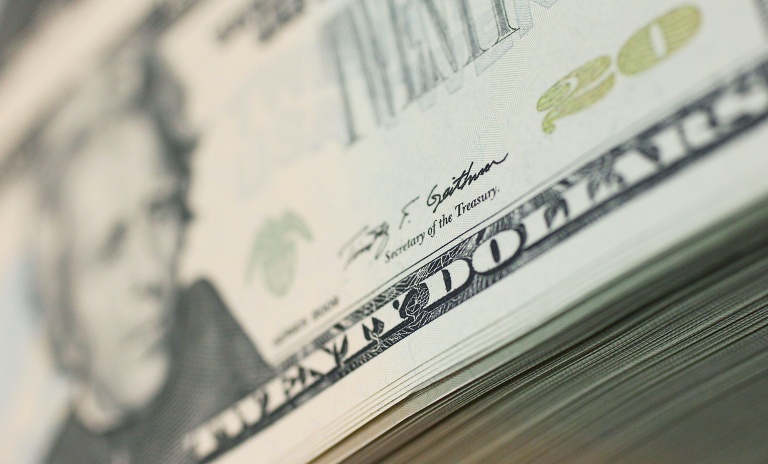London (AFP) – The Bank of England was set Thursday to keep its main interest rate at a 16-year high, resisting a cut as UK inflation cools at a slower pace than forecast.
The BoE is widely expected to maintain borrowing costs at 5.25 percent for a sixth meeting in a row, mirroring a wait-and-see approach by the US Federal Reserve and European Central Bank.
The BoE will announce its monetary policy at 1100 GMT following a regular meeting and on the eve of official data expected to show that the UK economy has exited a mild recession ahead of a general election due this year.
With the central bank set to keep the status quo, focus will be on accompanying statements for clues on when it may start cutting the interest rate.
The institution on Thursday will also update its UK inflation and growth projections in a quarterly report on the economy.
– Rate cuts on horizon –
“The market is expecting the first rate cut from the BoE between June and August,” noted Kathleen Brooks, research director at XTB trading group. “If the BoE does intend to cut rates next month, then we would expect to get a clear indication from the Bank on Thursday that this could happen.”
UK annual inflation fell less than expected in March — the last official reading — to 3.2 percent.
This is well down compared with late 2022, when the rate reached a four-decade high above 11 percent as energy and food prices soared following Russia’s invasion of Ukraine.
However, the UK inflation rate remains above the Bank of England’s two-percent target, prolonging a cost-of-living crisis.
High interest rates hurt borrowers including businesses, while British retail banks tend to mirror action by the BoE, resulting in big jumps to mortgage rates.
– Pound down, shares shine –
Expectations of UK rate cuts this summer have weighed on the pound, boosting share prices of British exporters and London-listed multinationals, pushing the capital’s benchmark FTSE 100 stocks index to record highs in recent weeks.
Despite the upbeat sentiment, a leading international organisation last week said that the UK would expand by only 0.4 percent this year because of the inflation situation and stubbornly-high interest rates.
The Organisation for Economic Cooperation and Development (OECD) projected also that the UK would perform worst among the Group of Seven major economies next year.
Britain may have new leadership by then, with polls widely indicating that the main opposition Labour party is on course to win an upcoming general election after 14 years of rule by the Conservatives, currently led by Prime Minister Rishi Sunak.
Boosting the Tories, however, could be data due Friday that is expected to show the UK economy grew in the first quarter, ending a short-lived recession.
At 5.25 percent, the BoE’s main interest rate is at the highest level since February 2008, handing a boost to savers.
The BoE hiked borrowing costs 14 times between late 2021 — when they stood at a record-low 0.1 percent — and the second half of last year, with supply-chain disruptions following Covid lockdowns also proving inflationary.
© 2024 AFP

